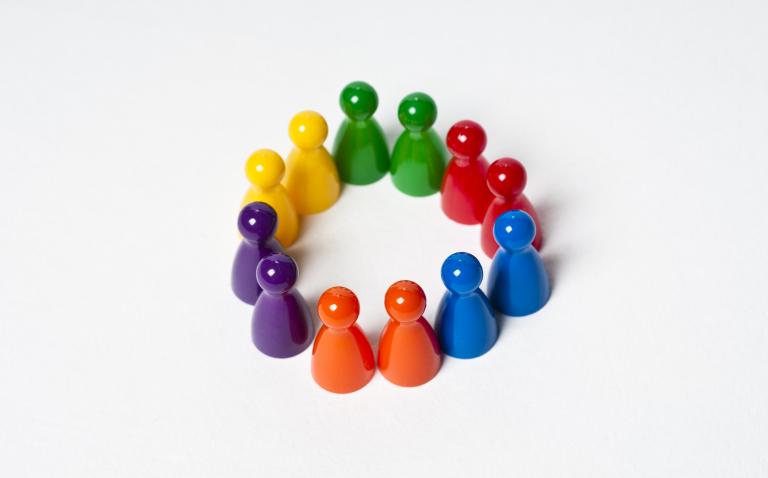Sjögren Europe is a European Federation of national patient associations for Sjögren’s Syndrome and rheumatic diseases created in February 2019 by the patient organisations of Finland, France, Greece, Italy, Netherlands, Portugal, Spain, Switzerland, United Kingdom and the support of the informal association of Belgium.
The headquarters of Sjögren Europe are in Switzerland and the first General Assembly will be held in Madrid in June 2019 during the EULAR congress where Sjögren Europe will be officially introduced to the rheumatology community.
The main objectives of Sjögren Europe:
- Empower national organisations
- Assist, promote and encourage the improvement of knowledge about Sjögren’s
- Syndrome and raise awareness about the disease and all its aspects among national Sjögren’s Syndrome and health-related organisations, patients, members of the health, welfare and medical professions, governmental bodies, pharmaceutical companies and the public
- Work to achieve an optimal care system, medical treatment and follow-up, psychosocial support and quality of life for all the Sjögren’s Syndrome patients in Europe
- Be involved in decisions, programs, strategies etc. which affect patients with Sjögren’s Syndrome in Europe
- Foster and/or undertake surveys and research projects related to the disease and the publication of the results of any such research
Sjögren’s Syndrome
Sjögren’s Syndrome is a complex systemic autoimmune rheumatic disease that specifically targets exocrine glands. Patients typically experience dry eyes and dry mouth. In addition to extensive dryness, other serious complications include profound fatigue, chronic pain, major organ involvement, neuropathies and lymphomas.
Despite its considerable prevalence among connective tissue diseases, Sjögren’s has been devoted less research, interest, time and effort compared with other close conditions.
Active and synergistic involvement of patients, clinicians and scientists in the definition of unmet needs and areas of future research is crucial.
In this context, “we decided to set up Sjögren Europe to address the lack of visibility and the unmet needs, foster patient training and involvement in research, raise awareness and articulate patient voices throughout Europe. Sjögren Europe would like this condition to be better considered, to speed up the discovery of the different mechanisms of the disease and of new treatments, enhance the global understanding of Sjögren’s Syndrome and want patients who so wish to have access to real and appropriate psycho- social support” pointed out Alice Grosjean.
About Sjögren Europe
The idea of Sjögren Europe emerged in April 2018 in Washington DC during the International Sjögren’s Syndrome Symposium (ISSS) and the decision to materialise it was launched during the EULAR congress in Amsterdam in June 2018. This new and great adventure is a wonderful opportunity to merge the voices, perspectives and needs of patient communities from different countries at European level and to bring a ray of hope to patients with Sjögren’s Syndrome. This is Sjögren Europe’s mission: working together and be a partner to all stakeholders of the sector in order to build a better future for patients with Sjögren’s Syndrome.
Sjögren Europe Board
- • Alice Grosjean (Switzerland), president
- Association Romande du Syndrome de Sjögren (ARSYS)
- • Mascha Oosterbaan (Netherlands), vice-president Nationale Vereniging Sjögrenpatiënten (NVSP)
- • Coralie Bouillot (France), secretary Association Française du Gougerot Sjögren et des Syndromes Secs (AFGS)
- •Katy Antonopoulou (Greece), treasurer, Hellenic League Against Rheumatism (EL.E.AN.A.)
- Ana Vieira (Portugal), member, Liga Portuguesa contra as Doenças Reumáticas (LPCDR)
- • Joyce Koelewijn-Tukker (Netherlands), member Nationale Vereniging Sjögrenpatiënten (NVSP)
- • Isabelle Lesuisse (Belgium), member Association de patients informelle Sjögren.be
Sjögren Europe Medical Board
- Prof Hendrika Bootsma (Netherlands)
- Prof Xavier Mariette (France)
- Prof Athanasios Tzioufas (Greece)
- Prof Chiara Baldini (Italy)
- Prof Wan-Fai Ng (United Kingdom)
- Dr Juan Ovalles (Spain)










